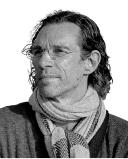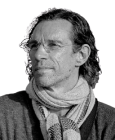Emotions
Life and Emotion in the Making of Consciousness
Psychological well-being is rooted in deep embodiment.
Posted September 27, 2024 Reviewed by Hara Estroff Marano
Key points
- There is an intimate dependence between consciousness and its biological substrate.
- The state of pure consciousness may be very relevant to the future of our psychological well-being.
- Evolutionary psychology and phenomenological psychology meet in a promising research adventure.
It is not easy to see clearly how deeply embodied our psychology is. Many cultural interpretations rooted in a dualistic metaphysics still leave deep marks on our thinking: The deep separation between body and mind, between human and nature, between subject and object, between spiritual and material, between language and reality clouds our perspective.
It is not easy to look at who we really are with an open mind. Our minds can be caught in a low-hanging fog. Many questions remain without definitive answers:
- Is embodied life necessary for consciousness to arise? (biological naturalism)
- Is all cellular life conscious? (biopsychism)
- Is all life intelligent?
Toward a Psychology of Being

Standing on the ridge, I could see the vastness of the landscape. It took days for the clouds to clear and for me to see anything. Trapped in a low hanging fog, I had no access to the spectacular landscape that was now unfolding before my eyes.
On one side, I can see the extraordinary ridges of the Picos de Europa in Cantabria stretching out in the distance. On the other, I can see the rolling Atlantic Ocean in the Bay of Biscay. High above me, eagles hover in the sky. In the ocean, I know there are many schools of dolphins and orcas swimming.
My heart is beating fast from the intense climb. Sweat pours down my back. Many sensations from my body are abundant. Emotions of wonder, gratitude, and curiosity deeply affect my vision. Abraham Maslow knew this when he wrote his influential book, Toward a Psychology of Being.
Standing on the ridge, with my psychology deeply rooted in my being, the clarity of the air allows me to admire the unspoiled, wild nature. The clarity of my mind allows me to see. Both are open states that I need to know and experience. Whether the eagle above me feels the spectacular view, I can only imagine. The rich embodiment around my senses allows me to perceive a rich spectrum of sensations in and around my body.
The emotional well-being that this observation brings me is beneficial. The richness of the psychology of my embodiment spans eons of evolution. The vastness of the cosmos surrounding my life is beyond imagination. The depth of the cellular conversation within me is staggering. The psychology of our being is breathtaking.
Promising Insights from Evolutionary Psychology and Biology
A particularly rich and empirically supported theory of evolution is emerging: Cognition-Based Evolution: Natural Cellular Engineering and the Intelligent Cell, by biologist William Miller (2023), is the first comprehensive alternative to the neo-Darwinism of the 20th century. It brings profound clarity to our questions. Life is inseparable from cognition. Where there is life, there is some form of cognition. Cells communicate extensively under stressful environmental conditions.
"Life's context is uncertain environmental information, communication is its means, and genes are its tools." (Miller, 2023)
Whether we can use the word consciousness for all these states of embodied knowing is an important refinement that is needed. Or do we better use the word sentience, as the capacity to feel (from the Latin verb sentire)?
In Could All Life Be Sentient?, Evan Thompson makes the claim:
"So the proposition I wish to consider is that all organisms have the capacity to feel.” (2022)
We may be able to imagine what it is like to be an eagle above the ridge, by taking "the eagle’s point of view", but it is still impossible "to know what it is like for an eagle to be an eagle". (Nagel, 1974) It seems that consciousness can be understood only in light of our nature as beings—embodied in a particular physical body and embedded in a particular environment.
Consciousness is intimately connected to its living biological substrate, which enables specific patterns of functional organization. There is an intimate dependence between consciousness and its biological substrate. Life may be necessary for consciousness (biological naturalism).
Baluška and Reber identify three possible candidate biochemical structures for the causal biological basis of consciousness: excitable membranes, a dynamic cytoskeleton (microtubules and actin filaments), and special proteins with fivefold symmetries and quasicrystal properties. (Baluska & Reber, 2019)
Promising Insights from Phenomenology
There is also particularly rich and hopeful research going on from the inner perspective. Especially in the search for a possible pure state of consciousness. neurophilosopher Thomas Metzinger, one of the world's leading researchers on consciousness, shares his deep experiential research in The Elephant and the Blind, a psychometric study of meditators in 57 countries. (2024) He focuses on the simplest form of human experience: pure consciousness.
From more than 500 subjective reports, he creates the basis for a phenomenology of pure consciousness. Consciousness as a valuable state of well-being. This state of pure awareness may be very relevant to the future of our psychological well-being; and, more important, to a sense of being intimately connected to life. Based on these insights, Metzinger deepens his ideas about a culture of consciousness: Should we actively cultivate these valuable states of consciousness in our culture and society?
Our Breathtaking Psychology Today
Evolutionary psychology and phenomenological psychology meet in a promising research adventure. What is the relevance of our brief excursion into evolutionary biology and deeper forms of introspection? Because we are deeply embodied and embedded beings, what we do to life, we do to ourselves. The quality of our psychological well-being is intertwined with the quality of our embodiment. Life offers us choices; we can continue to struggle in the fog of old dualistic concepts that polarize our present civilization and poison our future.
However, life can also be a great challenge to us if we are born in a place where an ancient war is being waged. We are blessed if we can ascend to a breathtaking perspective on the wild mountains in a free country. We are fortunate if we can ascend to an open and clear view of a living psychology that offers breathtaking possibilities.
References
Baluška, F. and Reber, A. (2019). Sentience and consciousness in single cells: How the first minds emerged in unicellular species, BioEssays, 41, 1800229. DOI: 10.1002/bies.201800229
Ginsburg, S. and Jablonka, E. (2019). The Evolution of the Sensitive Soul: Learning and the Origins of Consciousness. Cambridge, MA: The MIT Press.
Ginsburg, S. and Jablonka, E. (2020). Are your cells conscious? American Journal of Psychology, 133(1), pp. 117-121.
Ginsburg, S. and Jablonka, E. (2021). Sentience in plants? A green red herring? Journal of Consciousness Studies 28(1-2), pp. 17-33.
Maslow, A.H. (2011).Toward a Psychology of Being. Blacksburg, Wilder.
Metzinger, T. (2024). The Elephant and the Blind. The Experience of Pure Consciousness. Massachusetts, Mit Press.
Miller, W.B. (2023). Cognition-Based Evolution: Natural Cellular Engineering and the Intelligent Cell. 1st Edition. Florida, CRC Press.
Nagel, T. (1974). What Is It Like to Be a Bat? The Philosophical Review, Vol. 83, No. 4, pp. 435-450.
Reber, A. (2019). The First Minds. Caterpillars, ‘Karyotes, and Consciousness. New York: Oxford University Press. 38.
Reber, A. S. (2020). The origins of mind: A novel theory based on, of all things, learning. American Journal of Psychology 133(1), pp. 121-126.
Seth, A. (2021). Being You. A New Science of Consciousness. London, Faber & Faber Ltd.
Thompson, E. (2022). Could All Life Be Sentient? Journal of Consciousness Studies 29 (3-4), pp. 229-265.




